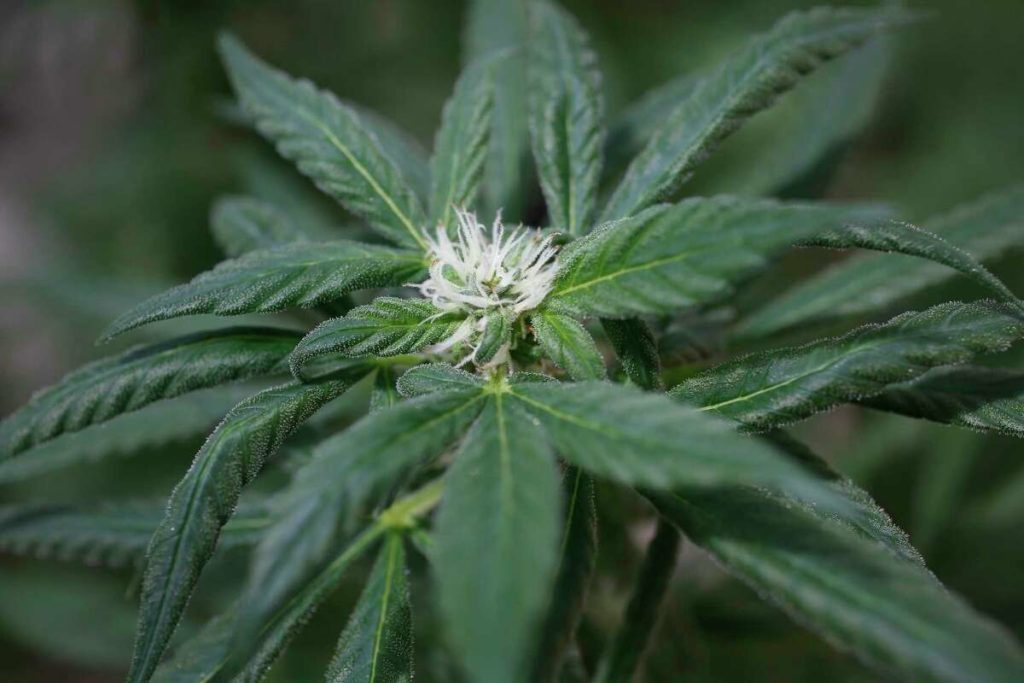HARTFORD — Connecticut Attorney General William Tong announced Thursday that he was suing five retailers in the state for the allegedly illegal sale of edible cannabis products targeted to youth — a crackdown that highlights the challenges of regulating recreational cannabis, whose legalized use in the state started last month.
The litigation focuses on products containing delta-8 THC, a naturally occurring chemical compound found in hemp and marijuana plants. Such products were found for sale at the five businesses during a series of unannounced visits in late December by the Office of the Attorney General, according to a news release. In many cases, those products mimicked youth-focused snack foods such as Airheads, Fritos and Skittles, the release said.
“Our undercover investigation revealed widespread sale of untested, unregulated, delta-8 edibles mimicking popular youth snacks,” Tong said in a written statement. “The five retailers we are suing today offered some of the most egregious look-alike edibles posing the worst risks for accidental youth poisoning. None of these edibles are tested or approved for sale in Connecticut, and packaging statements regarding THC content and safe serving sizes are not to be trusted. If you see delta-8 THC offered outside any licensed cannabis retailer, do not purchase it, and report it to my office immediately.”
Hearst Connecticut Media highlighted the regular sale of delta-8 THC products in a story in late 2022, including seeing products as containing delta-8 at two head shops in Connecticut. The packages were prominently displayed despite the law, with one lawyer telling a reporter that the problem was tied to a lack of enforcement.
The following businesses are being sued, according to Tong’s office:
• AZ Smoke Shop and Wireless, 695 Main St., Manchester
• Raheem Mini Mart, 352 Main St., Manchester
• Smokers Paradise, 320 Main St., East Hartford
• 7 Puff, 700 Burnside Ave., Enfield
• Anthony’s Service Station, 136 E. Main St., Plainville
In Connecticut, any product exceeding 0.3 percent THC is considered cannabis and regulated under state law. Businesses without a cannabis license cannot sell delta-8 THC that exceeds .3 percent THC.
In addition, “products containing cannabis must comply with stringent testing requirements, contain appropriate warnings and may not be packaged in a way that appeals to youth or mimics existing non-cannabis products,” the news release said.
In a related move, Tong said that he was sending warning letters to all Connecticut licensed retailers of electronic vaping products.
“Cannabis products in Connecticut cannot be sold by unlicensed retailers and must meet rigorous testing and packaging requirements. Period,” Tong said. “Any unlicensed Connecticut retailer selling delta-8 THC products that purport to contain high levels of THC is breaking the law and may be subject to both criminal and civil penalties. Lest there be any confusion, we are sending letters to thousands of vape shops who might sell these products in Connecticut outlining the laws and demanding that they remove any illegal products from their shelves immediately.”
Officials in the attorney general’s office and the state Department of Consumer Protection said that they were particularly concerned about the impact of illegal look-alike cannabis products on children because they might unknowingly ingest large doses of psychoactive chemicals. Children who accidentally eat an entire snack-sized bag of “chips” or “candy” might be exposed to more than 100 times the maximum adult serving, according to those officials.
One in five children nationally who accidentally eat such “edibles”are admitted to the hospital, according to the Connecticut Poison Control Center. Between 2000 and 2022, the center reported 189 cases of ingestion in children under age 19. The majority of those cases resulted in an emergency department visit, and about one-third resulted in the child being admitted to the hospital.
“For adults 21 years and older who choose to consume cannabis, there are many benefits to shopping in the regulated market,” Department of Consumer Protection Commissioner Michelle Seagull said in a written statement. “Products sold by licensed retailers are required to meet rigorous testing, packaging and labeling requirements to ensure consumers know what they are receiving and that they are getting exactly what they pay for. Unregulated products often are untested, come from unverified sources and can be easily mistaken for products that don’t contain cannabis, which can lead to accidental ingestion by adults and children who may not realize what they are consuming.”
H/T: www.ctinsider.com



